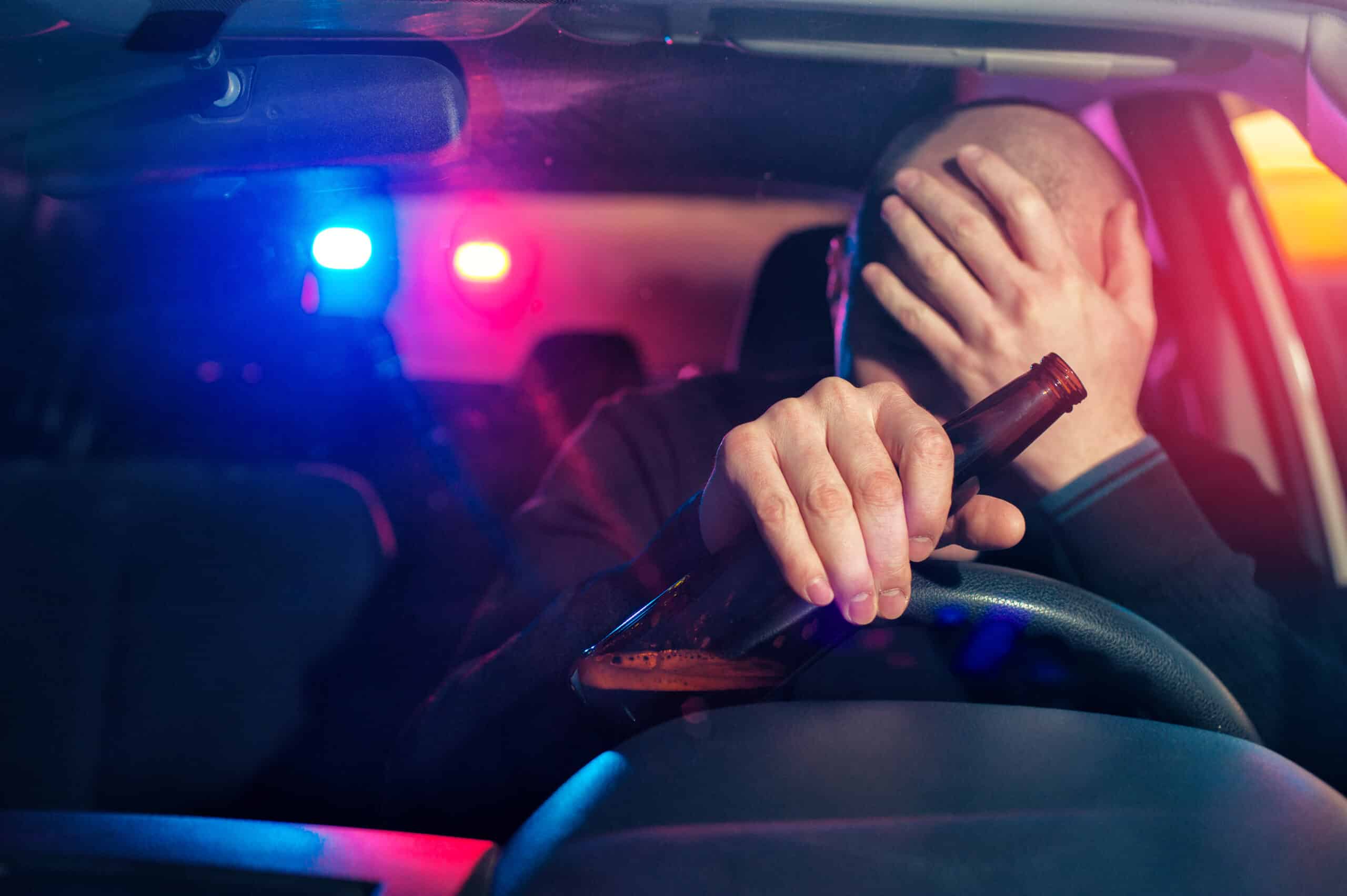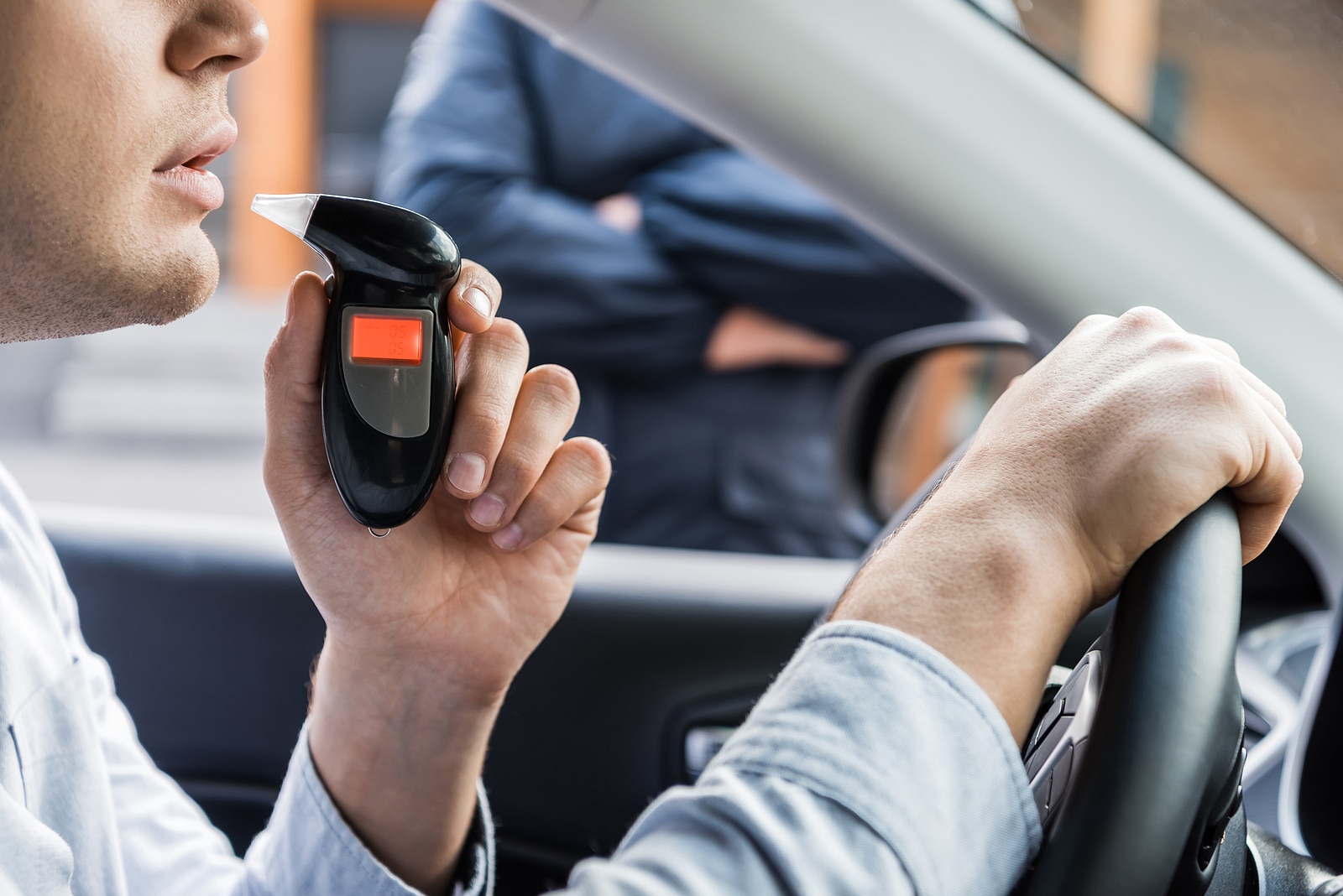How Does California Define a DUI?
In California and most other states, driving under the influence can refer to drugs, alcohol, or a combination of both. It is illegal to drive under the influence of any substance that alters your ability to operate a vehicle safely. Even the effects of prescription drugs can lead to a DUI arrest, as drugs from your doctor still have the ability to impact your driving capabilities.
When law enforcement officers suspect someone of driving under the influence, they will be pulled over in a traffic stop. Once stopped, officers will typically ask the driver of the vehicle to take a chemical test to check their blood alcohol content (BAC) levels. Officers may also use field sobriety tests, blood tests, or urine tests to check for intoxication. If your BAC is 0.08% or higher or you appear to be under the influence of drugs, officers can arrest or detain you.
The legal limit in California changes as you age. It is illegal to have a BAC of 0.01% or higher if you are below 21. If you are driving a commercial vehicle with a CDL, it is illegal to have a BAC of 0.04% or higher. If you refuse to take a chemical test when asked, the DMV will automatically suspend your license, even if you are eventually acquitted.
DUI charges are severe and can carry criminal penalties, especially if you are charged with a felony. If you are facing a DUI, it is essential to contact an experienced team of DUI defense attorneys. Contact our office today at 866-927-3295 for a free consultation.
What is Considered a Felony DUI?
In most cases, DUIs are charged as misdemeanors. Misdemeanor cases generally carry less severe penalties, and most misdemeanor offenders do not serve jail time. However, some extenuating circumstances can increase a DUI charge to the felony level.
A DUI is often charged as a felony in the following scenarios:
DUI Causing Injury
A DUI causing injury is illegal under California’s vehicle code. More specifically, it is unlawful to drive under the influence of drugs or alcohol and cause bodily injury to anyone besides yourself. If you hurt or injure anyone else, including the passengers in the vehicle with you, you can be charged with a felony DUI.
DUI causing injury is often called a “wobbler” charge. A wobbler means this offense can be charged as either a misdemeanor or a felony. Typically, this depends on the severity of the injuries caused and the driver’s prior criminal history, if applicable.
DUI Causing Death
Similar to a DUI causing injury, a DUI causing death can be charged as a felony offense. California’s Penal Code addresses both gross vehicular manslaughter while intoxicated and simple vehicular manslaughter while intoxicated.
Gross vehicular manslaughter includes an element of gross negligence to the vehicular manslaughter crime. Prosecutors must prove that the defendant killed another human being while intoxicated without malice or forethought.
If offenders have any prior DUI convictions on record, a DUI causing death can be charged as second-degree murder. Drunk driving with a prior DUI conviction can count as implied malice, leading to murder charges. This crime is also called a “Watson murder,” taking its name from the criminal case of People v. Watson, a lethal DUI crash.
DUI With Prior DUIs
Individuals with three or more DUIs on their record within the past ten years can be charged with a felony DUI. The prior DUIs must involve DUI convictions, not simple arrests or acquittals. DWIs, OUIs, and similar convictions in other states also count toward this felony offense.
Prosecutors may also count wet reckless driving convictions. Wet reckless driving convictions refer to a plea bargain conviction of reckless driving while under the influence of drugs or alcohol.
DUI With a Prior Felony DUI
Individuals with any prior felony DUI convictions on their record can automatically be charged with a felony DUI. Unlike misdemeanor DUIs, an offender can be charged with a felony DUI if they have even one prior felony DUI on record.
For instance, if you were convicted of a felony DUI due to death in previous years and you were charged with a second DUI, the new DUI charges would automatically become a felony offense. This new offense can be increased to a felony even if there was no bodily injury or death of another person.
DUI With Child Endangerment
Drivers who drive under the influence with minors in the car can be charged with a felony DUI. Any drivers that put minors at risk can face additional mandatory jail time or additional charges of child endangerment.
Child endangerment charges are often reserved for those with very high blood alcohol levels or those who exhibit hazardous behavior, like driving with a child who is not wearing a seatbelt. Prosecutors will use a child endangerment charge when trying to prove that the driver was willfully putting a minor in danger.
How Do You Fight a Felony DUI Charge?
When facing a felony DUI charge, it is essential to have an experienced team of DUI defense attorneys on your side. Felony DUI charges are severe and can have extreme criminal penalties. Your future, as well as your freedom, could be on the line.
Your specific defense strategy will depend on your criminal background and the circumstances of your charges. Our legal team will take the time to investigate the evidence against you to determine what the best legal path forward is.
The most common ways to fight a felony DUI charge include the following:
Lack of Probable Cause
Police officers must have probable cause to pull someone over for suspected drunk driving. If you were not swerving, speeding, braking excessively, or driving dangerously, our team could argue that your subsequent arrest was unlawful.
Lack of Reasonable Suspicion
When making an arrest, officers must have reasonable suspicion that you are driving under the influence. Our team will examine the evidence against you to determine if it is solid enough to make an arrest. If not, our team could argue that the case against you is faulty.
Incorrect Field Sobriety Test Administration
Law enforcement officers sometimes use field sobriety tests to determine an individual’s level of intoxication. However, field sobriety tests are often inaccurate and hard to standardize. If you were arrested or detained based on a field sobriety test, our team could argue that the test was not administered accurately.
Faulty Chemical Test Results
Chemical tests, like breath, blood, and urine tests, are used to measure the drugs or alcohol within a person’s system. However, the machines that run these tests can be faulty and give inaccurate results. Our team can test your samples in a private laboratory to compare them with police results.
Medical Conditions
Certain medical conditions, like diabetes and mental health conditions, can mimic the symptoms of being intoxicated. Similarly, some medical conditions, like GERD or acid reflux, skew your blood alcohol content results. Our team can present medical evidence on your behalf to prove that you were not driving under the influence.
Lack of Fault
If you are charged with a DUI causing bodily injury or death, our team could argue that your actions were not the direct cause of what happened to the victim. It’s possible that the victim themselves or another person caused the injury or death and that you are not responsible for that aspect of the criminal charges.
What Are the Potential Penalties for a Felony DUI?
The potential penalties for a felony DUI vary depending on the circumstances of your charges and your criminal history. In general, you can expect to face more severe charges than a misdemeanor DUI, as felonies are almost always taken more seriously in court.
Below are some of the potential penalties for a felony DUI charge:
Fourth DUI in Ten Years
In California, a fourth DUI in ten years carries up to three years in county jail and up to $10,000 in fines. However, because a fourth DUI is a wobbler, the prosecution may choose to charge it as a misdemeanor. A misdemeanor fourth DUI in ten years carries up to one year in jail and a fine of up to $1,000.
DUI With a Prior Felony DUI
If you already have a prior felony DUI conviction on your record, your next subsequent DUI charge will automatically be increased to the felony level. Even if there are no aggravating factors in your case, you could face up to three years in jail and up to $10,000 in fines.
DUI Causing Injury
A DUI causing injury can have varying penalties based on your criminal history, the extent of the victim’s injuries, and any other aggravating factors. Generally, a felony DUI causing injury can carry up to three years in county jail and up to $10,000 in fines. However, because this charge is a wobbler, prosecutors can choose to charge you with a misdemeanor. A misdemeanor charge would carry up to one year in jail and up to $1,000 in fines.
DUI Causing Death
A DUI causing death by vehicular manslaughter carries up to four years in county jail for simple negligence. A gross negligence charge is more serious and carries up to ten years in state prison. Both charges come with hefty fines that can cost thousands of dollars.
A DUI causing death by second-degree murder is a more serious charge. DUI second-degree murder carries between 15 years and life in state prison.
Can a Felony DUI be Expunged?
Living with a felony DUI conviction on your record is very difficult. Because a felony appears in any background check done by a member of the public, having a conviction on your record can make it challenging to secure housing, find a job, or apply to educational institutions. Expunging your record essentially deletes the records from existence, hiding them from the general public.
Both misdemeanor and felony DUIs are eligible for expungement in California. However, there are some eligibility requirements you must meet if you have a felony DUI on your record.
To apply for expungement, you must meet the following criteria:
- You have completed all the terms of your probation and are no longer on probation
- You have paid all fines, fees, and restitution
- You have completed any mandatory counseling or education programs
- You have completed all court-ordered community service
- You have complied with all court-ordered drug tests
- You are not serving a sentence or probation for another criminal offense
- You do not have any pending charges
- Your DUI sentence did not require you to serve time in a state prison
If you have questions about expungement and whether or not you qualify, contact our team today.
Should I Contact a DUI Defense Attorney?
All DUI offenses are serious, but felony DUIs carry more severe criminal penalties that can impact your life in many ways. Expensive fines, a driver’s license suspension, mandatory DUI school, and jail time are all possibilities if you are convicted. Plus, having a DUI conviction on your record makes it more difficult to find a job or secure housing in the future.
Having a DUI defense attorney on your side is essential if you are facing felony DUI charges. At the DUI Defense Group, we focus solely on cases that involve DUIs and other traffic-related incidents. We are confident that we can defend you from felony DUI charges and reduce or remove the penalties you are facing. For more information and to receive a free consultation, contact our law office today at 866-927-3295.



